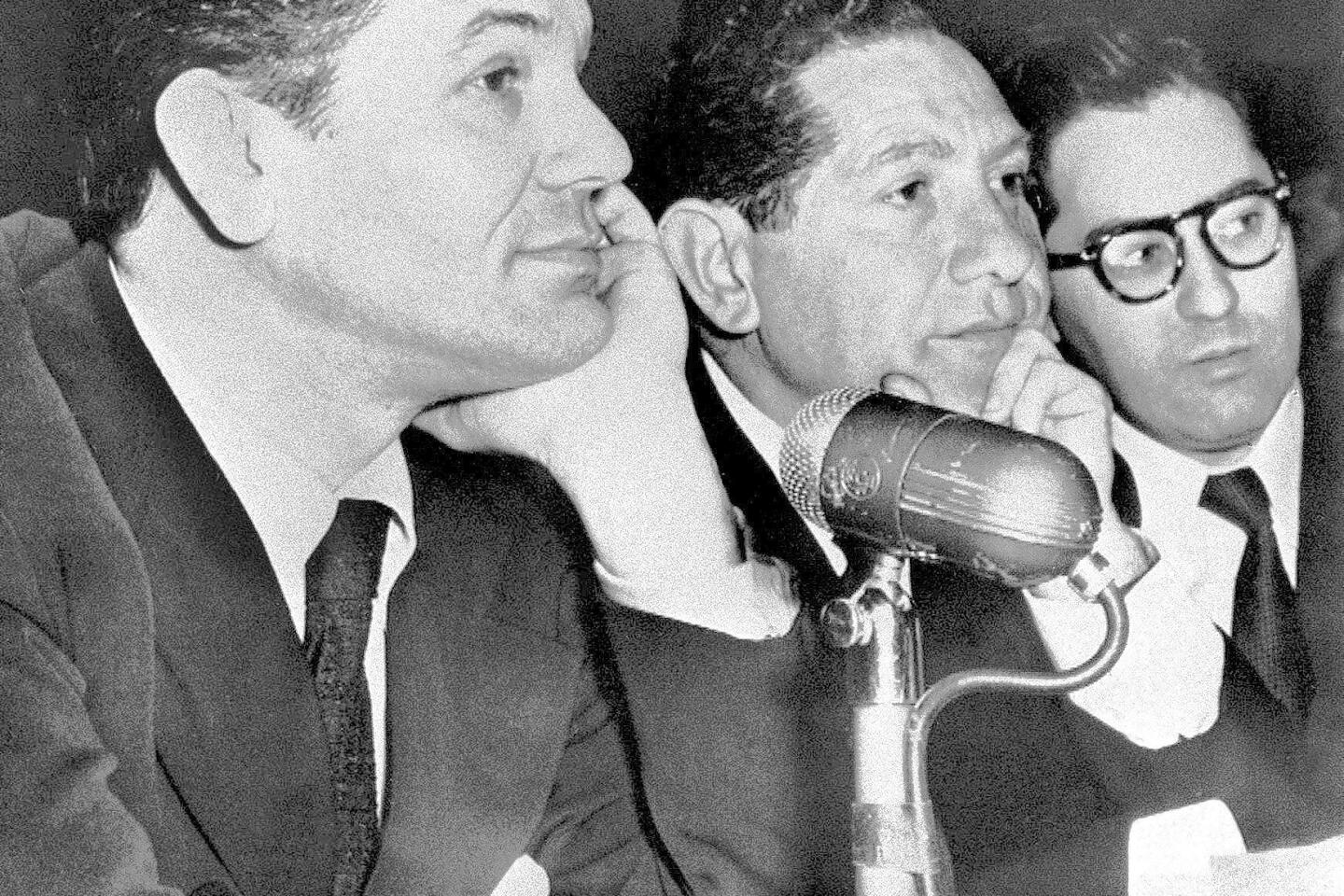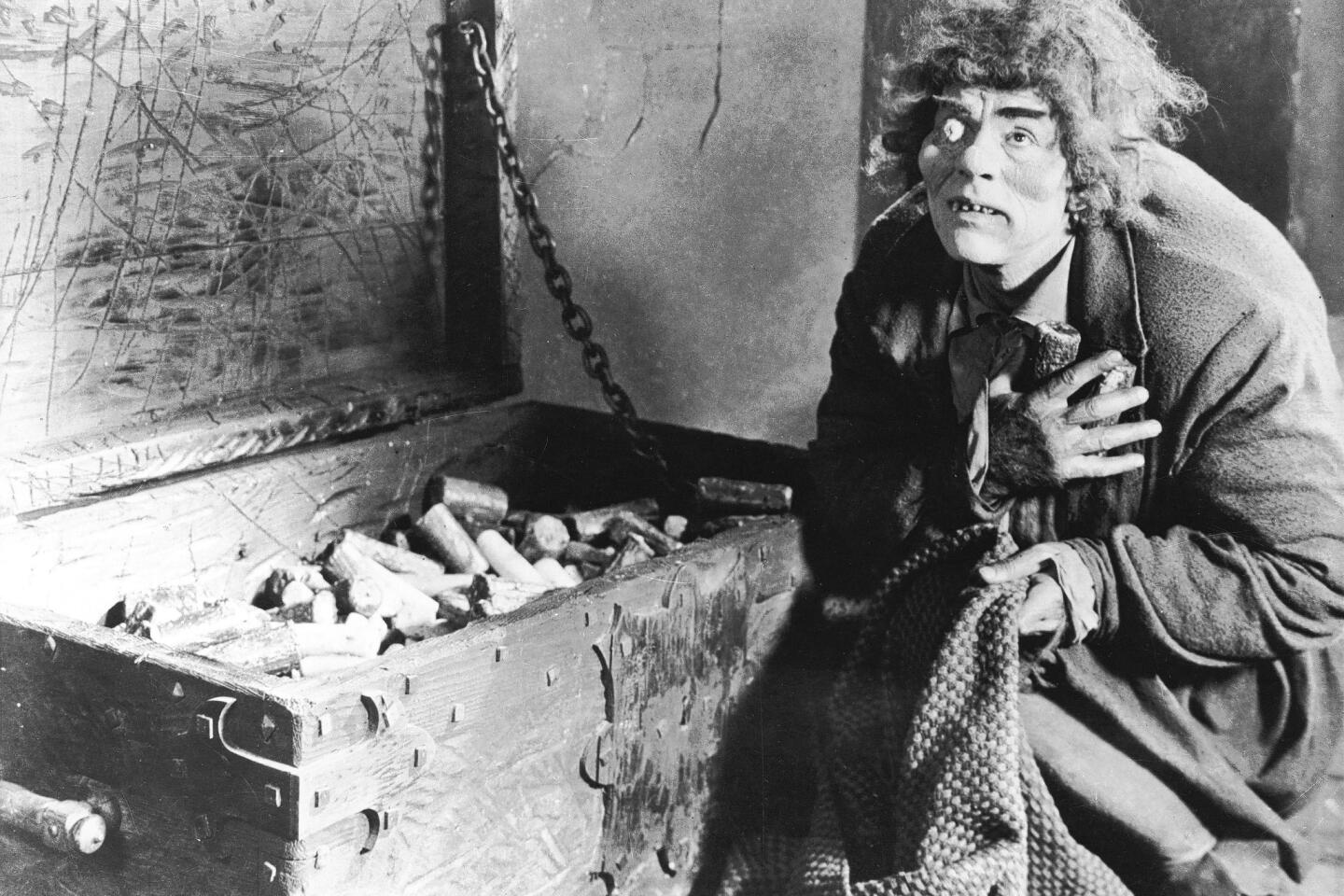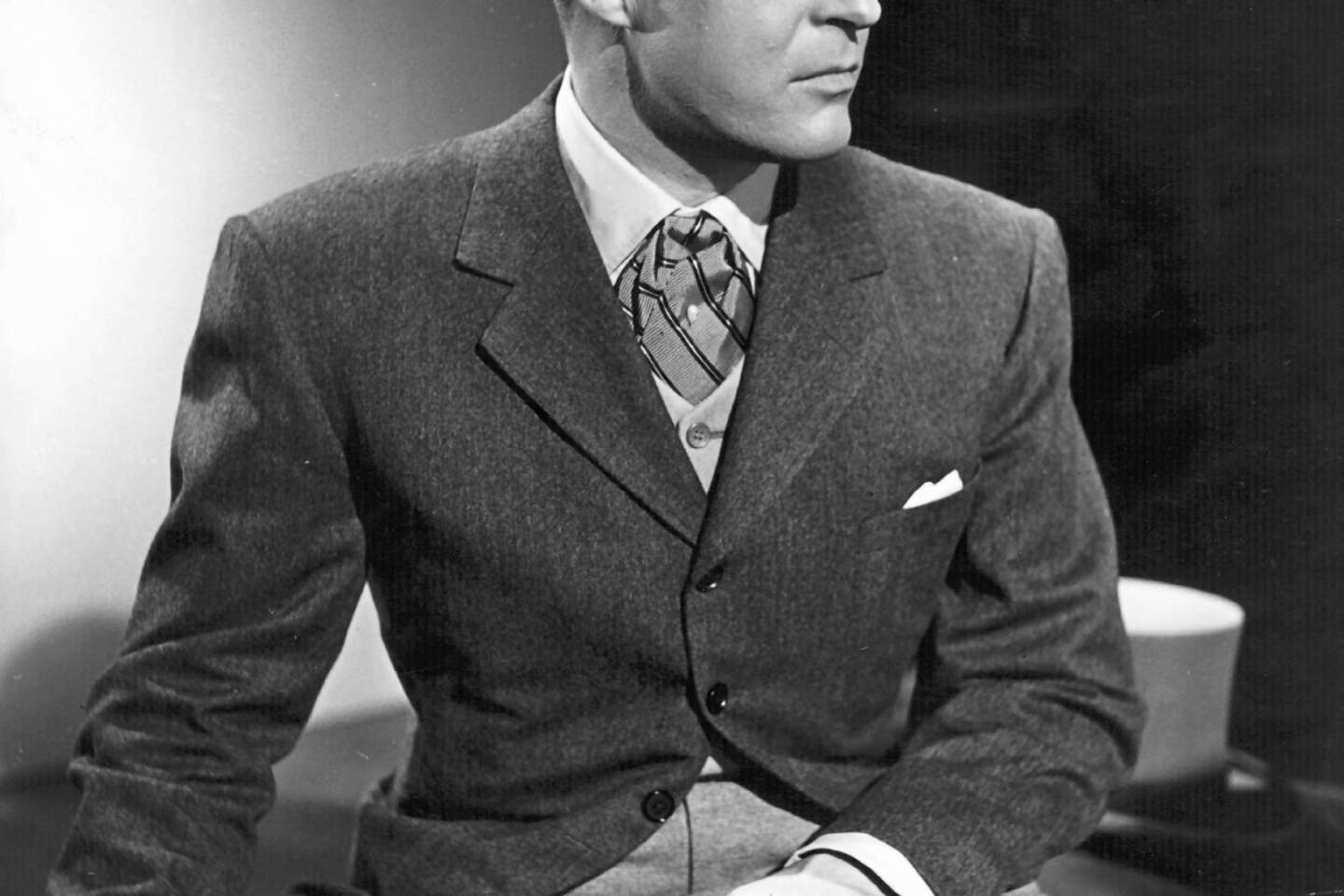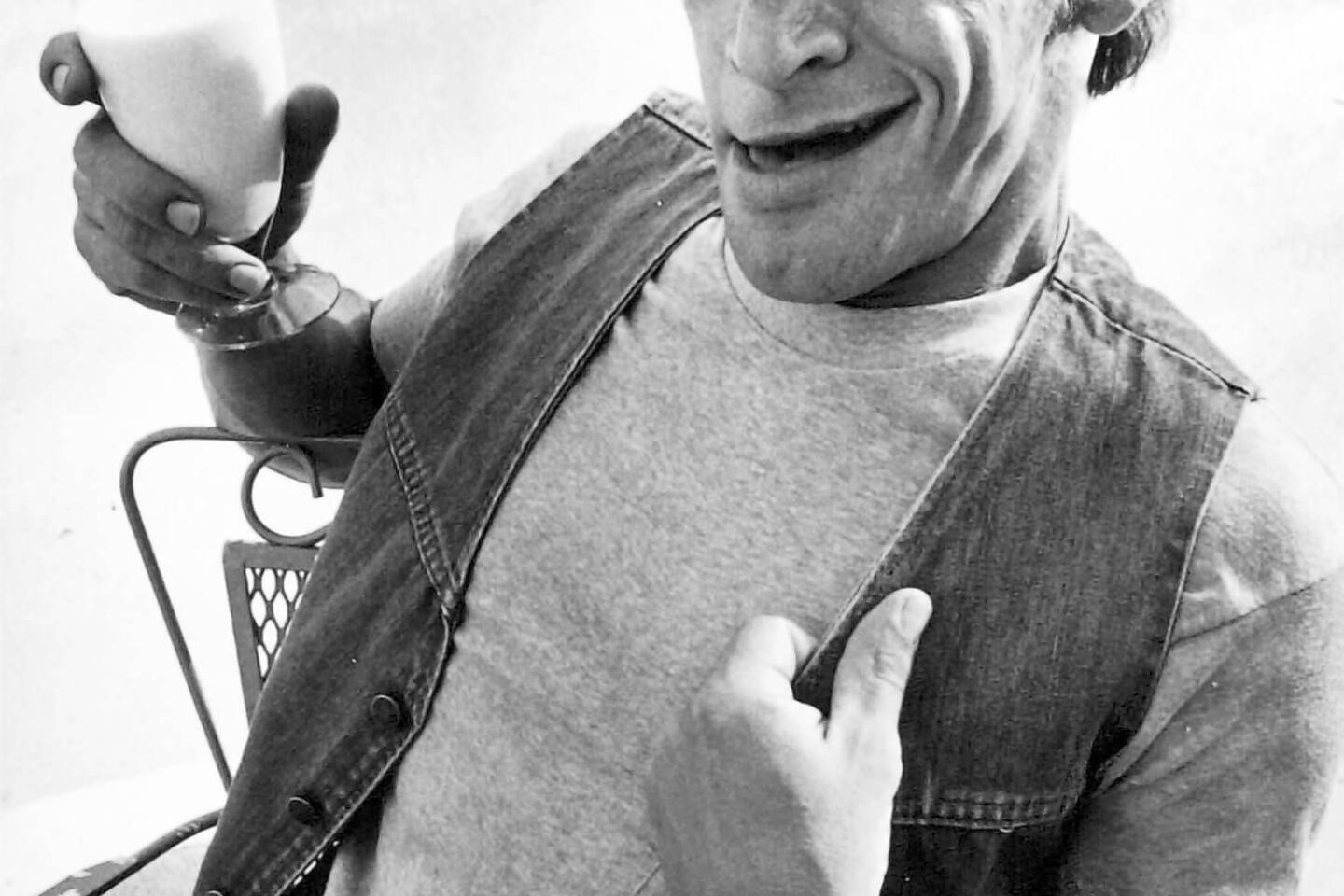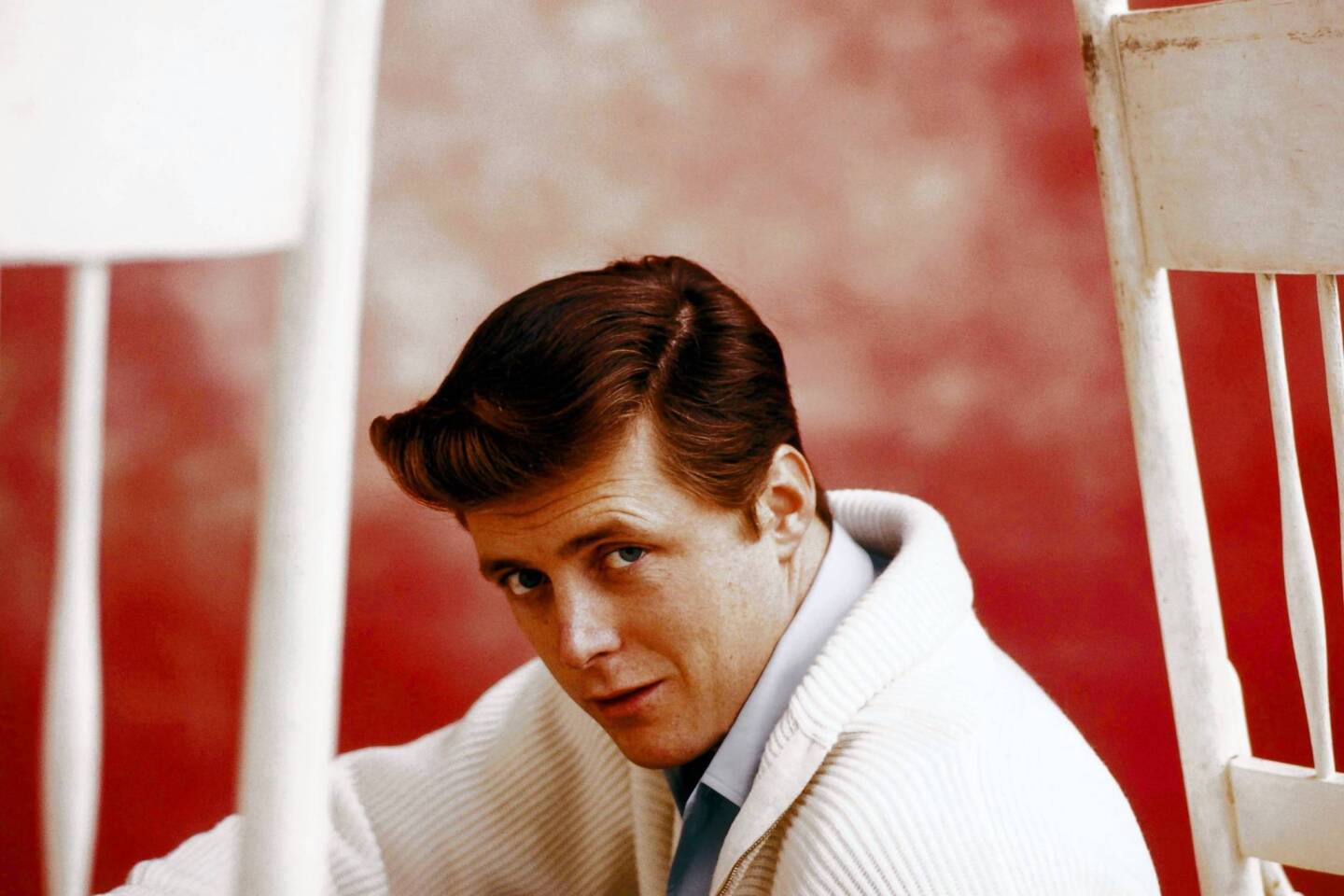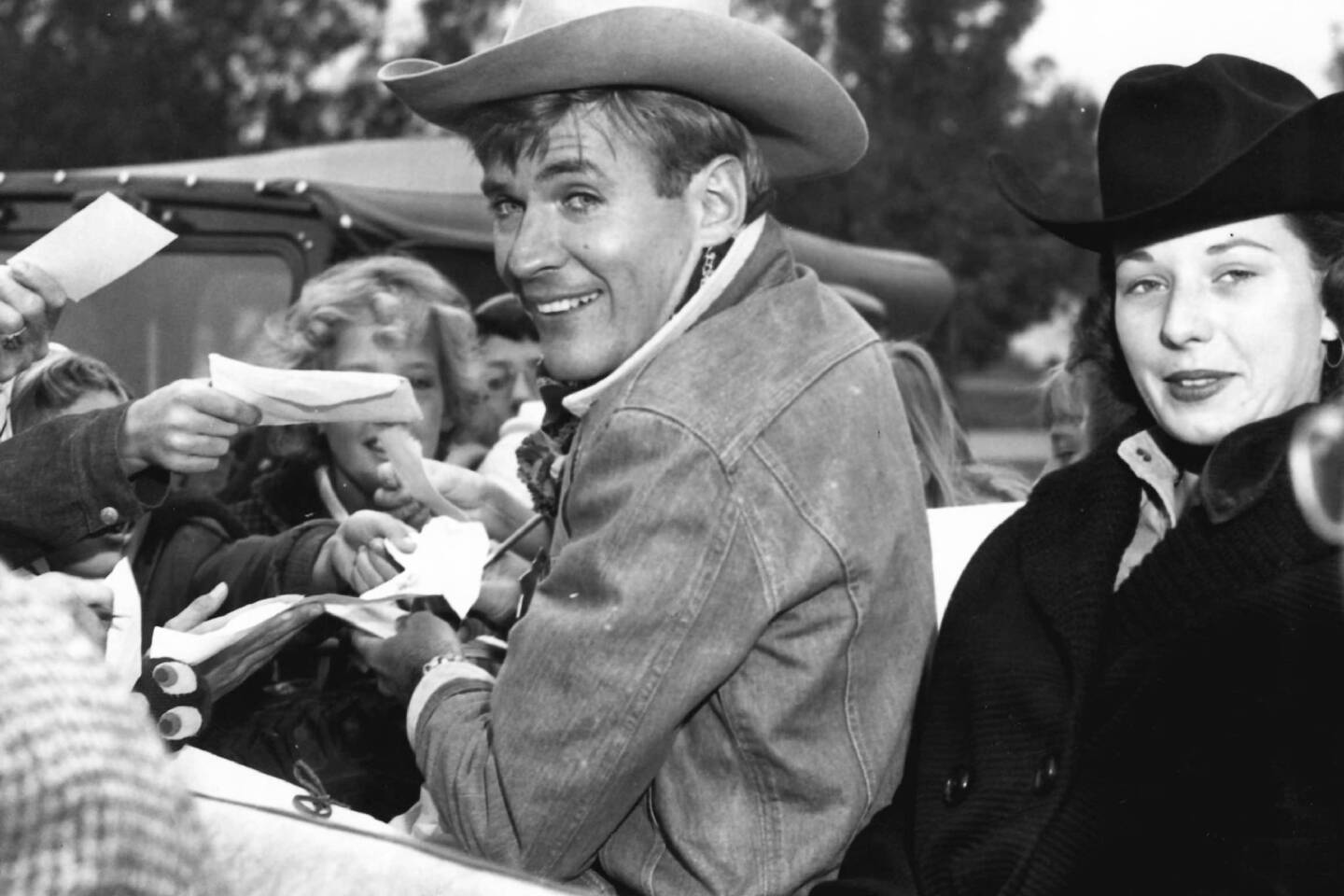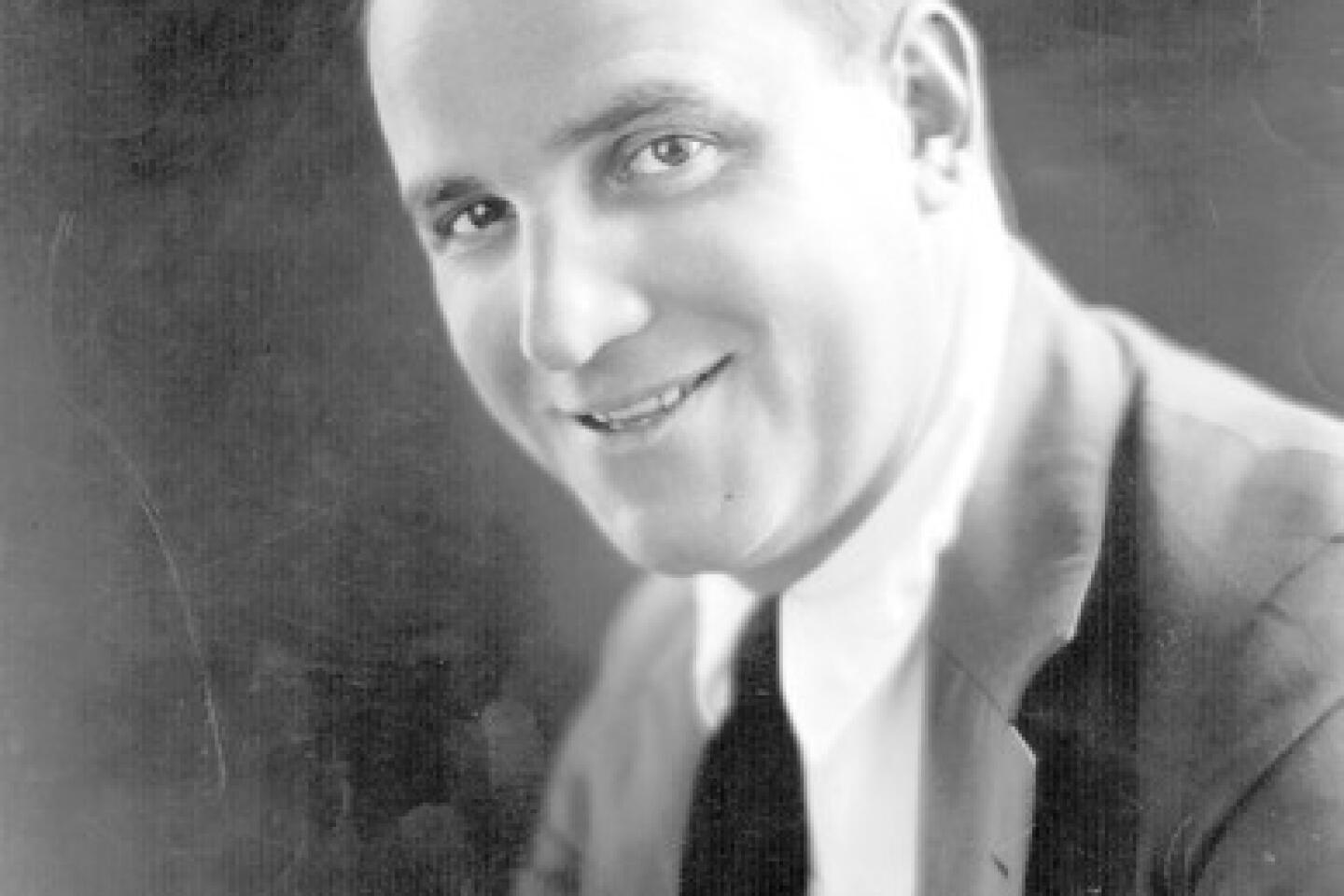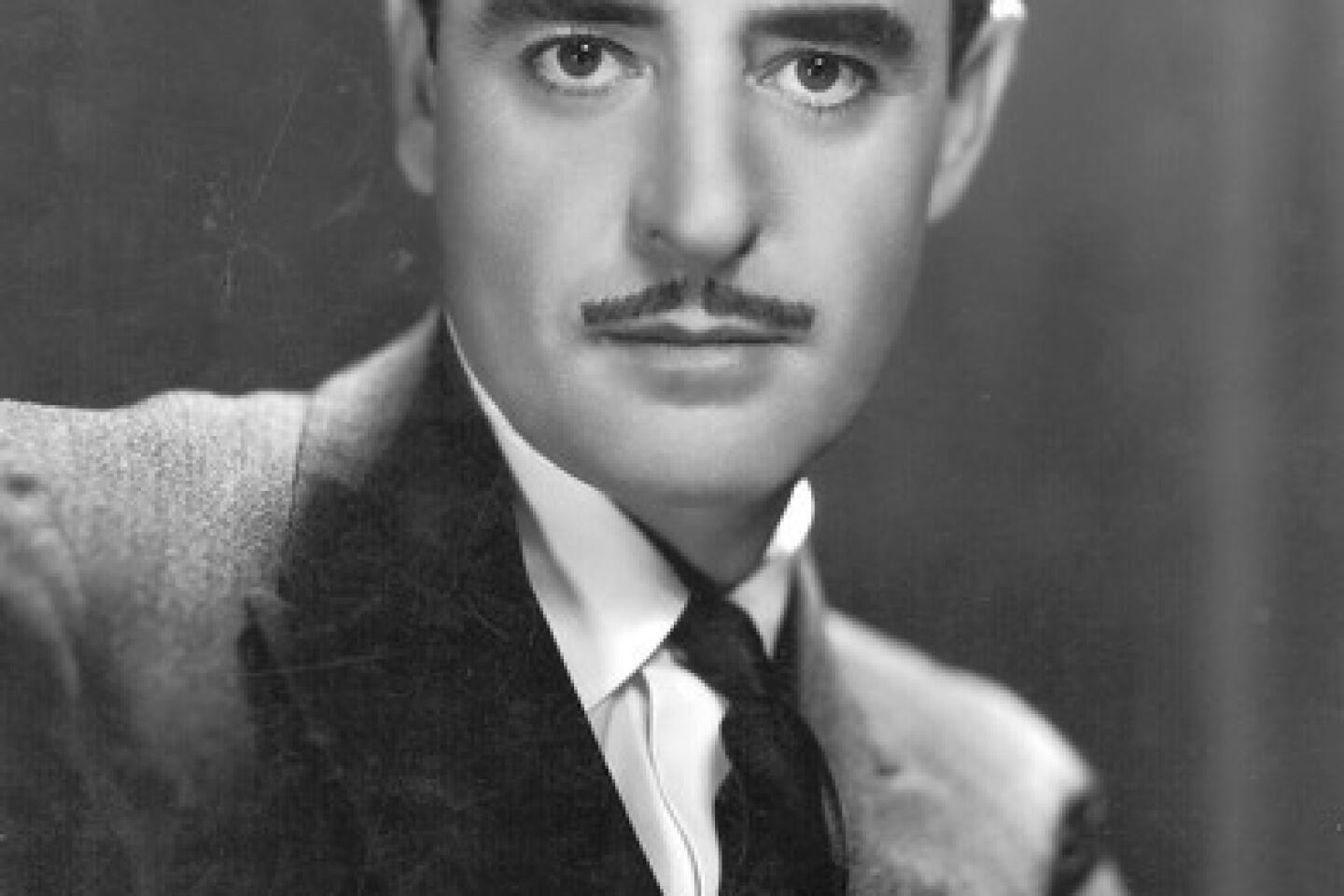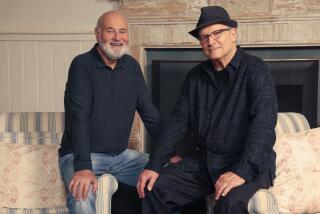Director Robert Butler put stamp on ‘Batman,’ other landmark series
Emmy Award-winning director Robert Butler was looking over his list of credits recently in preparation for the UCLA Film & Television Archive’s “Evening With Robert Butler” celebration Thursday at the Billy Wilder Theater.
“I won’t be coy,” confessed the 86-year-old Butler. “I looked at the list and was staggered. I never really totaled them up.”
FOR THE RECORD:
Robert Butler: An article in the Jan. 19 Calendar section about TV director Robert Butler says that UCLA Film & Television Archive’s “An Evening With Robert Butler” will be Jan. 23 at the Billy Wilder Theater. The event will take place the evening of Jan. 24. The error was discovered after the section went to press. —
In a career that spanned more than five decades, Butler directed the pilot episodes of such landmark series as “Hogan’s Heroes,” “Batman,” “Star Trek,” “Hill Street Blues” (for which he won one of his three Emmy Awards), “Remington Steele,” which he created with Michael Gleason, and “Moonlighting.”
PHOTOS: Behind-the-scenes Classic Hollywood
Along the way, he helmed episodes of such beloved TV series as “The Fugitive,” “Gunsmoke,” “I Spy,” “The Dick Dyke Show” and “The Untouchables.” He also directed several TV movies, winning two Emmys for the 1973 four-hour police drama “The Blue Knight” with William Holden.
And Disney fans know him as the director of such feature comedies as 1969’s “The Computer Wore Tennis Shoes” and 1971’s “The Barefoot Executive,” both starring then-teen idol Kurt Russell.
“Given his numerous contributions to pop culture, he should be a household name,” said Mark Quigley, manager of the archive’s Research and Study Center, who will be chatting with Butler on Thursday. Screening that evening will be “The Cage,” the original 1965 pilot of “Star Trek” starring Jeffrey Hunter as Capt. Christopher Pike that was rejected by NBC for being too cerebral, and “Publish or Perish,” a 1974 installment of the NBC mystery series “Columbo” starring Peter Falk.
“There really is no parallel when it comes to the breadth of iconic TV programs he worked on and the number of TV pilots he directed,” said Quigley. “A director like Butler was able to come in and help establish motifs that allowed these series to be embraced by audiences. If you look at the scope and scale, from ‘Hogan’s Heroes’ to ‘Moonlighting,’ it shows a real ease across genres.”
PHOTOS: Celebrities by The Times
There’s a real ease to Butler himself. He’s a genial and funny raconteur during a recent interview in his expansive Westwood home. The key to directing, Butler said, “is about winning as many arguments as you can.” And as he got more control, Butler won a lot of arguments.
A UCLA alum with a degree in English, Butler said he was “trained in the best kindergarten” for aspiring directors in the 1950s — CBS Television City.
“I was an usher for three weeks and a receptionist for two weeks, a production clerk for couple of years, a stage manager for a couple of years and an associate director for a few years,” he recalled.
“Seven years at CBS TV City taught me the alphabet,” said Butler, who during that period worked on classic anthology series such as “Playhouse 90.”
His first directing job was in 1959 on the Jackie Cooper series “Hennesey,” in which he directed a young Ron Howard. Butler’s work on that series led to him directing the top shows of the day.
Butler’s first pilot assignment was the World War II sitcom “Hogan’s Heroes,” which aired on CBS from 1965-1971. “That was an accident, because the director dropped out,” said Butler.
GRAPHIC: Faces to watch 2014 | Entertainment
Next, he put the Pop Art touches (BAM!, POW!) into the pilot of ABC’s campy cult fave “Batman” with Adam West and Burt Ward; it ran from 1966-1968.
But it was his work on the 1980s series “Hill Street Blues” that changed the look of police procedural dramas. In fact, the pilot was groundbreaking on many levels. It was naturalistic, gritty and grimy. The use of hand-held cameras gave it a documentary feel.
His friend Grant Tinker, co-founder of MTM Enterprises, sent Steven Bochco and Michael Kozoll’s pilot script for “Hill Street Blues” to Butler to read. Surprisingly, Butler had his reservations.
“My first thought was, ‘Do we need another cop show?’ ” said Butler. “I had a good amount of directorial disdain, which is always helpful. I realized it was quite comedic. We met, we talked. I mentioned the comedy. I got offered it.”
With the pilot, Butler wanted to shake things up. “We lit too much, we were too clean and orderly,” he said. “I told the cinematographer to make it look bad, and he would whisper to me, ‘It looks really bad,’ and I would say, ‘Make it look worse!’ ”
More to Read
The complete guide to home viewing
Get Screen Gab for everything about the TV shows and streaming movies everyone’s talking about.
You may occasionally receive promotional content from the Los Angeles Times.
